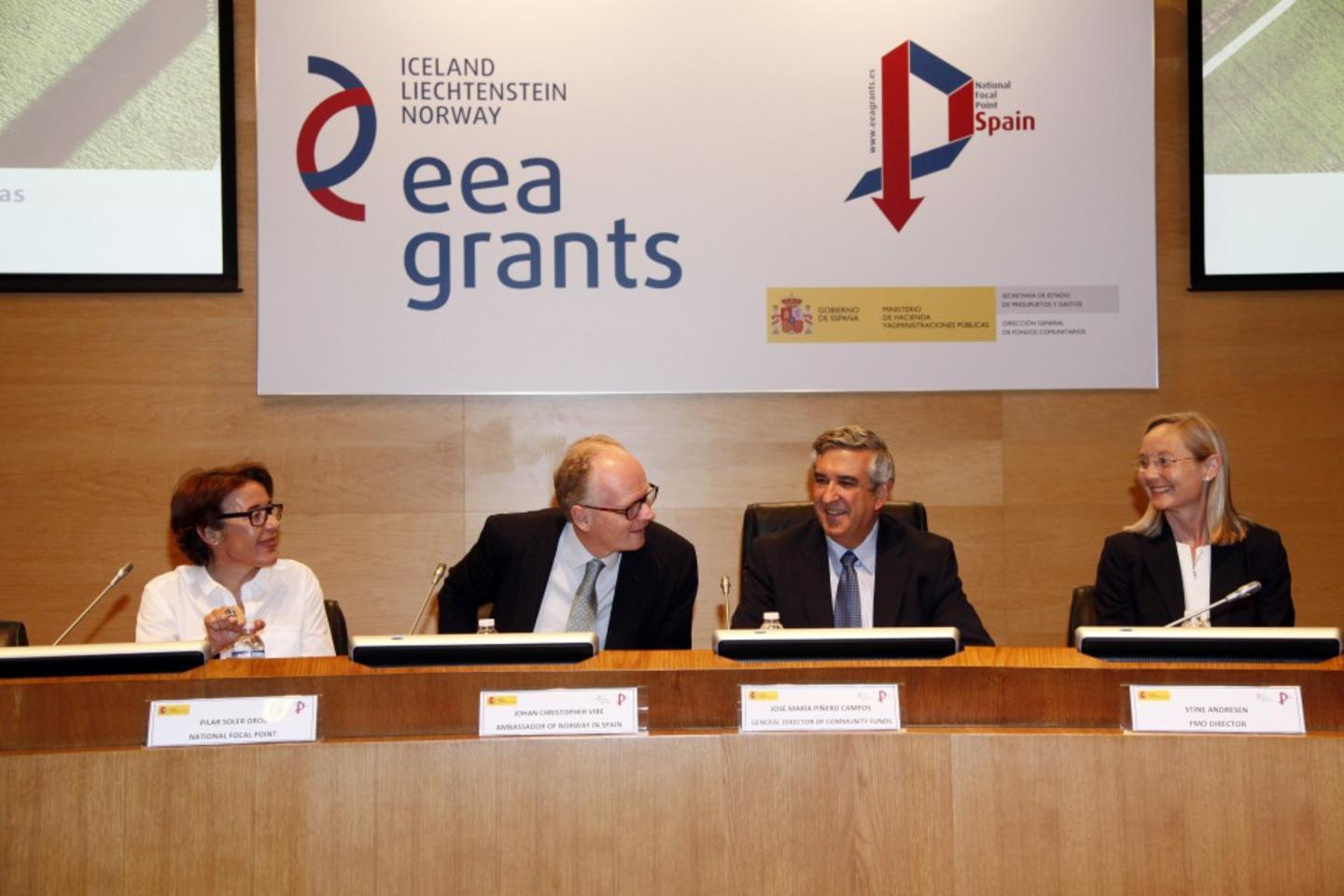Over 150 people from the donor countries, Spanish government departments, programme operators and project promoters took part in the event held in the Ministry of Finance.
Iceland, Liechtenstein and Norway contribute €45 million to programmes in Spain in the current funding period. Almost 400 projects have been approved to date in fields as diverse as environmental research and technology development, civil society, scholarships, gender and culture - 42% of these with a donor project partner, making Spain one of the countries with the highest level of bilateral activity.
Support to Spain however stretches back long before this current period, with the country having been a recipient under the grant schemes since 1994. More than twenty years of joint working and €375 million in funding will leave an important legacy, not least in the ties and linkages that have been established between a wide variety of organisations in Spain and the donor countries – public authorities, companies, research centres and universities, cultural centres, NGOs – which will endure way beyond the funding period.
Ambassador of Norway to Spain, Johan Christopher Vibe, underlined the benefits of the bilateral cooperation:
“The implementation of the EEA programmes has proved an excellent tool for strengthening bilateral cooperation between Spain and Norway. We are pleased to see that many of the bonds created and initiatives taken will keep on running in the future. Some projects have taken on a larger European and even global dimension.”
José María Piñero, Spanish General Director of Community Funds, pointed out that the EEA Grants “have succeeded in boosting sustainable development from good ideas and talent and in improving the relationship between Spain and Norway”.
During the seminar, some of the results of the programmes were presented, with the floor also given to project promoters to tell of their achievements – like a research project managed by a team in the Complutense University of Madrid and the Norwegian Institute for Energy Technology which has developed innovative materials for renewable energies. Or the ‘Promociona’ project which seeks to encourage a higher number of women executives on boards of directors. One hundred and ninety women have taken part so far in the business training, mentoring and coaching activities on offer under the scheme to help improve their skills.
Read more about the investment and results in Spain
